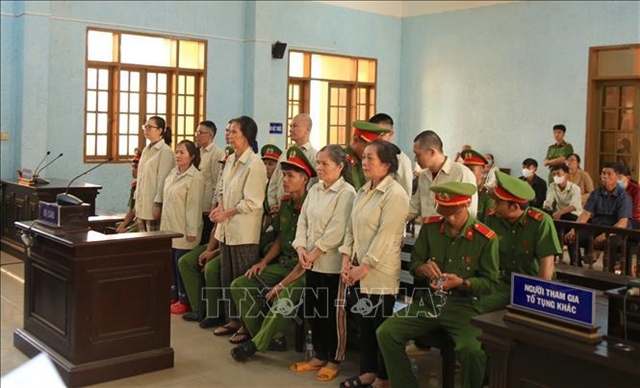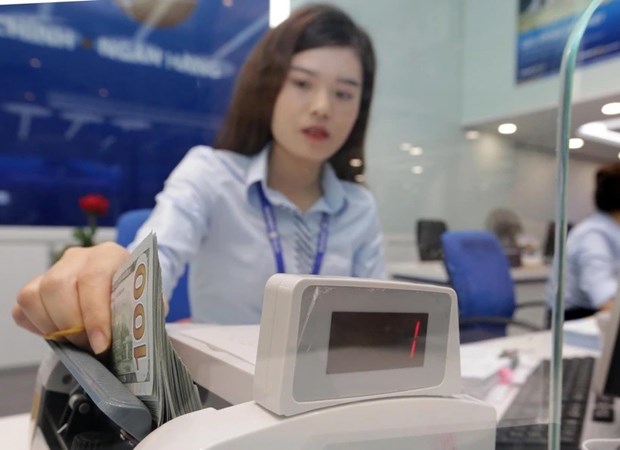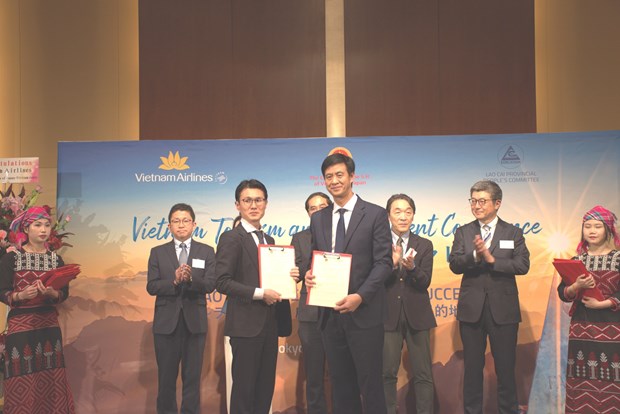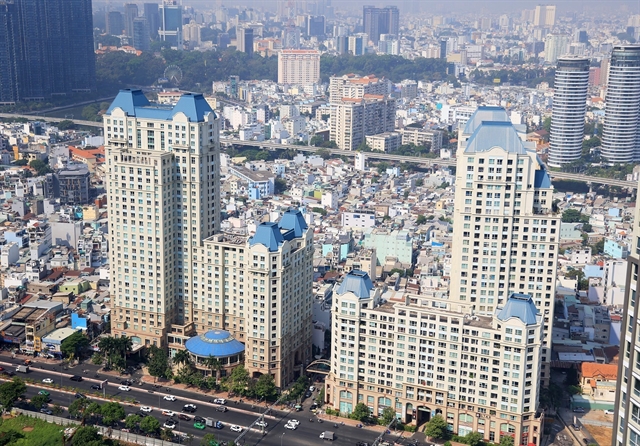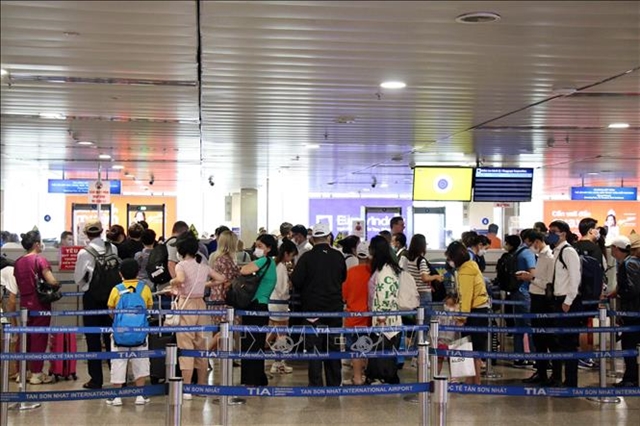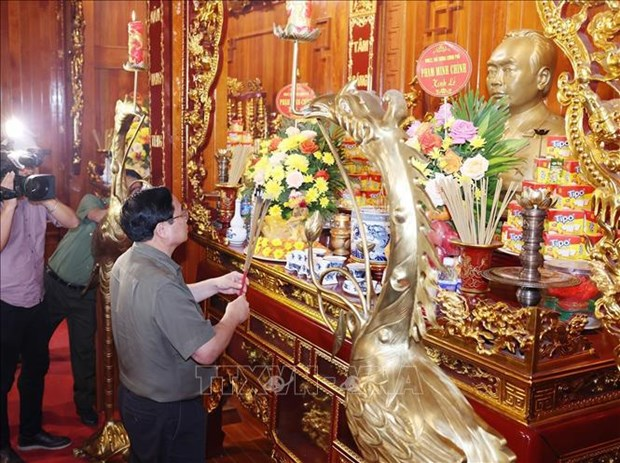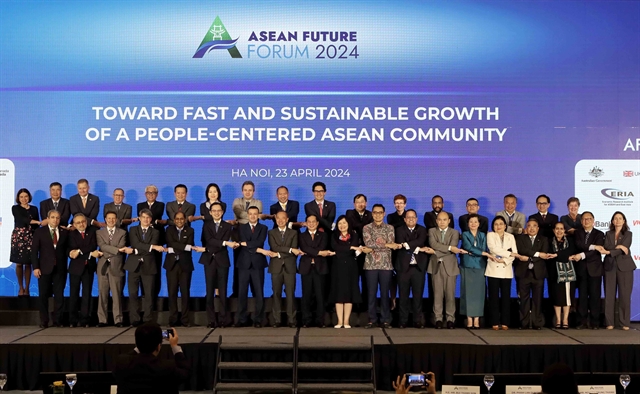 Politics & Laws
Politics & Laws

A sense of regionalism was one of the greatest achievements of the Association of Southeast Asian Nations (ASEAN) over the last five decades and will remain critical for its integration in the future, experts said.
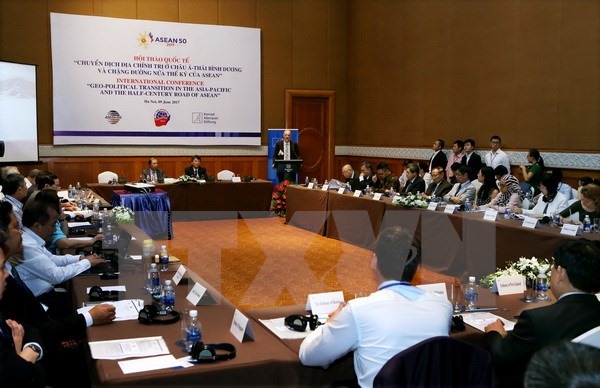 |
| Around 70 scholars and diplomats of ASEAN nations attend an international workshop named “Geo-political transition in the Asia-Pacific and the half-century road of ASEAN” held in Hà Nội on Friday.— VNA/VNS Photo Nguyễn Dân |
HÀ NỘI — A sense of regionalism was one of the greatest achievements of the Association of Southeast Asian Nations (ASEAN) over the last five decades and will remain critical for its integration in the future, experts said during an international workshop named “Geo-political transition in the Asia-Pacific and the half-century road of ASEAN” held in Hà Nội on Friday.
Around 70 scholars and diplomats of ASEAN nations discussed and exchanged their views on what the largest bloc in the Asia-Pacific region has achieved since its establishment in 1967 and what challenges await it in the future.
The workshop was jointly organised by the ASEAN Institutes for Strategic and International Studies, the Diplomatic Academy of Vietnam and the German Konrad Adenauer Stiftung.
Researcher Andrew Wiguna Manton from Indonesia’s Centre for Strategic and International Studies said that the ASEAN helps maintain stable regional order, pulling great powers like the United States or China into the regional habits and ways of communication, while at the same time creating a sense of regionalism.
ASEAN was originally formed of only five countries including Indonesia, Malaysia, the Philippines, Singapore and Thailand, at a time when disputes and conflicts shadowed the Southeast Asia region.
“But all ten countries now hold hands together in a single organisation: ASEAN”, said Vũ Khoan, former Vietnamese Deputy Prime Minister.
It marked one of the biggest changes in the region compared to half a century ago, when the region was doomed under Indochina wars, until 1991 with the Paris Peace Accords marking the end of the Cambodian war, Khoan said.
“The picture was completely changed then. There were no longer wars between countries in the region,” he said.
ASEAN outlook
ASEAN as a whole, Khoan said, would face economic hurdles in the near future.
Members of the regional bloc had enjoyed fast growth since the end of the 20th century, due to their quick integration into the third industrial revolution, restructuring their economies with the boom of information technology while embracing regionalism and taking advantage of globalisation trends, the former deputy PM said.
“With the upcoming fourth industrial revolution, the question is whether ASEAN can get a hold of change when inventions and innovations are largely unseen in the region,” he said.
“ASEAN, which has benefitted much from open economics, will also have to figure out their economic stance as protectionism is surfacing as a new global trend.”
Dr Suchit Bunbongkarn, a senior fellow at the Thailand’s Institute for Security and International Studies, pointed out that ASEAN is now trapped in a world of security uncertainties, with the heated Korean peninsula conflict in the Northeast Asia, the South China Sea dispute, the threat of terrorism, particularly the spread of the Islamic States in the Philippines and cybersecurity. The uncertainty of the United States security role in the Southeast Asia and the rise of China were among the top security concerns for ASEAN nations, he said.
“On one hand, Chinese investment is beneficial in economic terms to the Southeast Asian mainland. On the other hand, it raises a serious concern among ASEAN members over the possible Chinese economic and cultural domination,” Bunbongkarn said.
In such context, Khoan said, ASEAN members must try to balance their national and common interests.
“In the times of conflicts, we should reach a common voice, a common interest. We all are on the same ASEAN boat. If the boat sinks, we all sink together,” he said. — VNS


